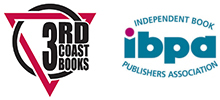Here at 3rd Coast Books we are frequently asked why we call ourselves a “hybrid publisher” and how we differ from other publishers? Good question!
We are a new bird on the book publishing scene called a “hybrid publisher”. You’ve heard of traditional publishing and self-publishing (called indie publishing these days), and even vanity publishing. 3rd Coast Books is an innovative alternative that brings the best of both the traditional and indie publishing worlds together to benefit the author.
Publishers Weekly recently posted an article recognizing hybrid publishing. “Authors no longer have to choose between traditional publishing and self-publishing. A third option has emerged and is gaining ground: Hybrid publishing which fuses aspects of traditional publishing and self-publishing…. Amy Edelman, president and founder of Indie Reader says the ‘better hybrid publishers are the ones that vet the book before agreeing to take them on…’” (Nicole Audrey Spector, “The Indie Author’s Guide to Hybrid Publishing.” May 20, 2016.)
Our principals have a combined 65 years in the book publishing arena and have seen publishing from every conceivable angle of the business. We decided the publishing triangle was upside down. The publisher got almost all the proceeds and the poor writer sat at the bottom of the triangle with his/her measly 5-7%. And the writer has no creative control.
As a hybrid publisher, 3rd Coast Books changes all that. We perform much of the work a traditional publisher would complete but we partner with the author, rather than act as the authoritarian boss.
- We vet all manuscript submissions, which sets us apart from vanity publishers who publish anything if you pay the price.
- We create your book in house with a battery of seasoned book publishing professionals versus taking a chance on finding someone to help with that work on the unfiltered internet.
- We listen to your desires and want your input for the cover design, formatting, and branding of your title.
- We have award winning copy writers who create catchy, eye opening copy for your back cover and all advertising materials.
One of the best things about hybrid publishers: they have a real leg up on traditional publishers in working quickly and efficiently to get books into the market. 3rd Coast Books moves your book from manuscript to market in 3 to 4 months. Traditional publishers take a minimum of 12 to 18 months and schedule their titles out 2 to 5 years.
As David Vinjamuri, a contributor to Forbes, notes, “Hybrid publishers may have a persistent advantage, though, because not only are they natively speedy, but they also attract like-minded authors.” (“How Hybrid Publishers Innovative to Succeed”, Forbes Jan 08, 2014.)
Vanity publishers charge a high fee to produce an inferior product over which you have little if any control. In addition, they don’t help you with marketing at all! The reward with a hybrid publisher is creative control and higher royalties—40%—which you won’t get with traditional publishers.
As all hybrid publishers do, 3rd Coast Books charges an upfront fee for work done to create the finished book product. This amount is about half of what similar hybrid publishers charge for a lot less benefits.
We reward authors with 40% royalties and, 50% off additional book copies which they can purchase to sell at events and signings. Both fiction and non-fiction packages include 100 copies of the final book product for the author to do with as they see fit. If the author chooses to sell the 100 free copies they receive with the package, they can earn back 50 to 75% of their upfront costs.
We want the author to make money so we give them a great deal of creative control. Many times, they can help us better understand how to market their title. We want to be the author’s trusted publishing partner in an exciting and fun adventure.
Hybrid publishers look wide and attract various kinds of authors. Vinjamuri says, “[Hybrid publishers] draw in self-published authors looking to expand their footprint, many of whom are used to putting out multiple books in a year. They also appeal to traditional authors looking for more control and higher royalties who are already savvy in marketing books.”
As Vinjamuri notes, “If these hybrid publishers act like very clever marketers, it’s because they are. Beyond exploiting new segments, they’ve started to create imprints that are meaningful consumer brands. The benefit to the publisher is significant, because an imprint with brand equity can help sell a book by a new author who might otherwise go unnoticed.”
Publishers Weekly extols the best virtues of the hybrid publishing model: “For many authors, the value of working with hybrid publishers rather than self-publishing is clear. There’s support, community, and the sense that the publisher believes in the work.”
Since we aim to be the premier hybrid publisher in the industry, we’re serious about what leaves our house. We want well written literature that has been professionally edited, so we can market it aggressively. Won’t you join us?
.

